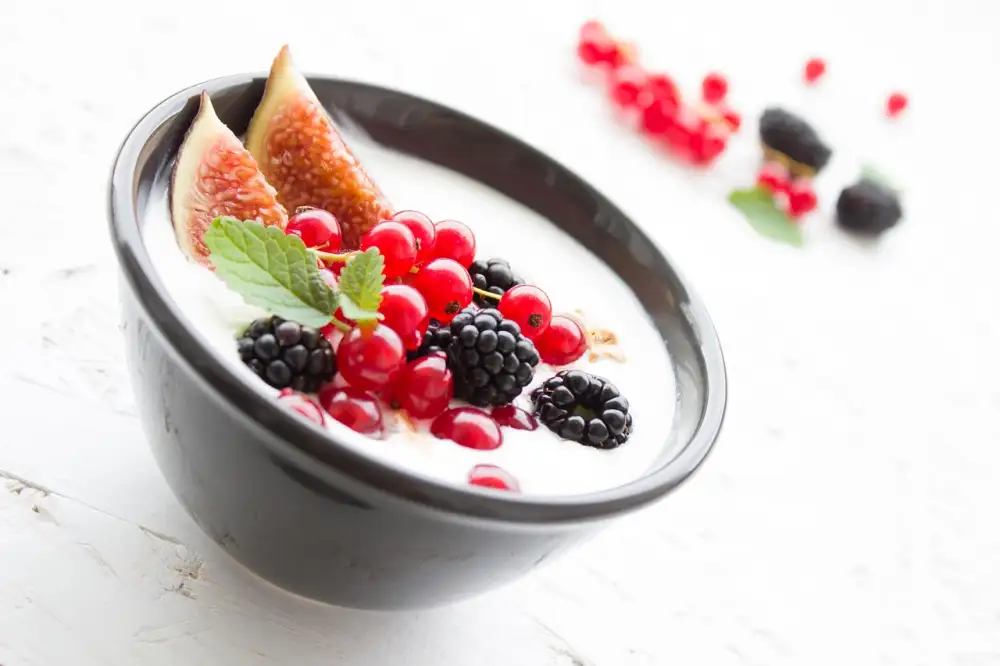Delicious and Nutritious: Discover the Best Healthy Low Calorie Meals for a Nourishing Lifestyle

- Benefits of Incorporating Healthy Low Calorie Meals into Your Diet
- Key Principles of Creating Healthy Low Calorie Meals
- Nutritious Ingredients for Healthy Low Calorie Meals
- Cooking Techniques for Healthy Low Calorie Meals
- Sample Recipes for Healthy Low Calorie Meals
- Tips for Meal Planning and Portion Control
- How to Maintain a Balanced Diet with Healthy Low Calorie Meals
In today's fast-paced world, where convenience often takes precedence over health, it is crucial to prioritize nourishing our bodies with healthy low calorie meals. These meals not only provide essential nutrients but also help in maintaining a balanced weight and promoting overall well-being. By choosing the right ingredients and adopting smart cooking techniques, we can create delicious and nutritious dishes that will fuel our bodies and unleash our culinary creativity. So let's embark on a journey to discover the best healthy low calorie meals for a nourishing lifestyle.
Benefits of Incorporating Healthy Low Calorie Meals into Your Diet
Incorporating healthy low calorie meals into your diet offers numerous benefits for your overall well-being. Firstly, these meals can help you achieve and maintain a healthy weight, as they are lower in calories compared to traditional dishes. This can be particularly beneficial for those looking to lose weight or manage their weight effectively. Secondly, low calorie meals are often packed with essential nutrients such as vitamins, minerals, and antioxidants. These nutrients play a vital role in supporting a strong immune system, promoting good heart health, and reducing the risk of chronic diseases like diabetes and certain cancers. Additionally, consuming low calorie meals can improve digestion and increase energy levels throughout the day. By choosing nutrient-dense ingredients and incorporating a variety of fruits, vegetables, whole grains, lean proteins, and healthy fats into your meals, you can ensure that your body receives the necessary fuel it needs to function optimally. Overall, incorporating healthy low calorie meals into your diet not only supports weight management but also enhances your overall health and well-being.
Key Principles of Creating Healthy Low Calorie Meals
When it comes to creating healthy low calorie meals, there are a few key principles to keep in mind. First and foremost, focus on incorporating nutrient-dense ingredients that provide essential vitamins, minerals, and antioxidants. Opt for whole grains, lean proteins, and plenty of fruits and vegetables.
Another important principle is to limit the use of added sugars and unhealthy fats. Instead, choose natural sweeteners like honey or maple syrup, and opt for healthier cooking oils such as olive oil or avocado oil.
Portion control is also crucial in creating healthy low calorie meals. Be mindful of serving sizes and aim for balanced portions of protein, carbohydrates, and vegetables. This will help you feel satisfied while keeping your calorie intake in check.
Lastly, don't forget about flavor! Healthy low calorie meals can still be delicious by using herbs, spices, and other seasonings to enhance the taste without adding extra calories. Experiment with different combinations to find your favorite flavors.
By following these key principles, you can create tasty and nutritious low calorie meals that will nourish your body while satisfying your taste buds.
Nutritious Ingredients for Healthy Low Calorie Meals
When it comes to creating healthy low calorie meals, choosing the right ingredients is crucial. Opting for nutrient-dense foods that are low in calories can help nourish your body while keeping your waistline in check. Here are some nutritious ingredients to include in your meals:
1. Lean proteins: Incorporate lean sources of protein such as skinless chicken breast, turkey, fish, tofu, or legumes. These provide essential amino acids and keep you feeling full.
2. Colorful vegetables: Load up on a variety of colorful vegetables like spinach, kale, broccoli, bell peppers, carrots, and tomatoes. They are packed with vitamins, minerals, and fiber while being low in calories.
3. Whole grains: Swap refined grains for whole grains like quinoa, brown rice, whole wheat bread or pasta. These provide more fiber and nutrients to keep you satisfied.
4. Healthy fats: Include sources of healthy fats like avocados, nuts (almonds, walnuts), seeds (chia seeds, flaxseeds), and olive oil. These fats promote satiety and support overall health.
5. Low-fat dairy or alternatives: Choose low-fat dairy products or plant-based alternatives like almond milk or Greek yogurt for calcium and protein without excessive calories.
6. Fresh fruits: Enjoy a variety of fresh fruits such as berries, apples, oranges, or bananas as a natural source of sweetness and additional vitamins.
Remember to read food labels carefully to ensure you're selecting products with minimal added sugars and unhealthy additives. By incorporating these nutritious ingredients into your meals, you can create delicious low calorie dishes that nourish your body and support a healthy lifestyle.
Cooking Techniques for Healthy Low Calorie Meals
When it comes to preparing healthy low calorie meals, the cooking techniques you choose can make a significant difference. Here are some techniques that will help you create delicious and nutritious dishes while keeping the calorie count low.
1. Grilling: Grilling is a fantastic way to cook meats, fish, and vegetables without adding excess fat. It allows the natural flavors to shine through while giving your food a smoky and charred taste. Opt for lean cuts of meat and marinate them with herbs and spices for added flavor.
2. Steaming: Steaming is a gentle cooking method that retains the nutrients in your ingredients. By using a steamer basket or a bamboo steamer, you can cook vegetables, seafood, and even grains without any added oil or fat. The result is tender and flavorful food that is low in calories.
3. Stir-frying: Stir-frying involves quickly cooking small pieces of ingredients over high heat in a minimal amount of oil. This technique preserves the vibrant colors, textures, and flavors of vegetables while keeping their nutrient content intact. Use non-stick pans and incorporate plenty of colorful vegetables for a nutritious stir-fry.
4. Roasting: Roasting brings out the natural sweetness of ingredients by caramelizing their sugars. It requires little to no oil and allows you to achieve crispy textures without deep frying. Roast vegetables like sweet potatoes, Brussels sprouts, or cauliflower for a tasty side dish or toss them with lean protein for a complete meal.
5. Poaching: Poaching involves gently simmering food in liquid until it's cooked through. It's an excellent technique for delicate proteins like fish or chicken breasts as it keeps them moist without adding extra calories from oils or fats. Use flavorful broths or citrus-infused water to enhance the taste.
By incorporating these cooking techniques into your culinary repertoire, you can enjoy healthy low calorie meals that are full of flavor and nutrients. Experiment with different combinations of ingredients and seasonings to create a variety of delicious dishes while maintaining a nourishing lifestyle.
Sample Recipes for Healthy Low Calorie Meals
1. Grilled Chicken Salad: Marinate chicken breast in lemon juice, garlic, and herbs. Grill until cooked through. Toss with mixed greens, cherry tomatoes, cucumber, and a light vinaigrette.
2. Vegetable Stir-Fry: Sauté a variety of colorful vegetables like bell peppers, broccoli, carrots, and snap peas in a small amount of olive oil. Season with ginger and low-sodium soy sauce.
3. Quinoa Stuffed Bell Peppers: Cook quinoa according to package instructions. Mix with black beans, corn, diced tomatoes, and spices. Stuff into halved bell peppers and bake until tender.
4. Baked Salmon with Roasted Vegetables: Place salmon fillets on a baking sheet lined with parchment paper. Season with lemon zest, dill, salt, and pepper. Roast alongside a medley of seasonal vegetables.
5. Zucchini Noodles with Turkey Meatballs: Spiralize zucchini into noodles or use pre-packaged zoodles. Bake turkey meatballs seasoned with Italian herbs until cooked through. Serve over the zucchini noodles with marinara sauce.
These sample recipes showcase the versatility of healthy low calorie meals while still providing delicious flavors and satisfying portions for a nourishing lifestyle.
Tips for Meal Planning and Portion Control
Maintaining a balanced diet while enjoying healthy low calorie meals is essential for long-term health and well-being. Here are some tips to help you achieve this:
1. Include a variety of food groups: Make sure your meals consist of a balance of carbohydrates, proteins, and fats. Incorporate whole grains, lean proteins like chicken or fish, and healthy fats from sources like avocados or nuts.
2. Portion control: Even though low calorie meals are nutritious, it's important to watch your portion sizes. Use smaller plates and bowls to help control your portions and prevent overeating.
3. Eat mindfully: Slow down and savor each bite. Pay attention to your body's hunger and fullness cues to avoid overeating. This will also allow you to fully enjoy the flavors and textures of your meal.
4. Stay hydrated: Drink plenty of water throughout the day to stay hydrated. Sometimes thirst can be mistaken for hunger, so staying hydrated can help prevent unnecessary snacking.
5. Plan ahead: Plan your meals in advance to ensure you have nutritious options readily available. This will help you avoid reaching for unhealthy convenience foods when hunger strikes.
6. Listen to your body: Pay attention to how different foods make you feel. Everyone's dietary needs are unique, so listen to your body's signals and adjust accordingly.
By following these tips, you can maintain a balanced diet while enjoying delicious and nutritious low calorie meals that support your overall health goals.
In conclusion, embracing the delicious and nutritious world of healthy low calorie meals is a fantastic way to nourish your body and maintain a balanced lifestyle. By incorporating these meals into your diet, you can enjoy a wide variety of flavors while still keeping your calorie intake in check. With the benefits they offer, such as weight management, improved overall health, and increased energy levels, there's no reason not to explore the endless possibilities of healthy low calorie cooking. So go ahead and unleash your culinary creativity with these delectable dishes - your taste buds and body will thank you!
Published: 02. 01. 2024
Category: Food



